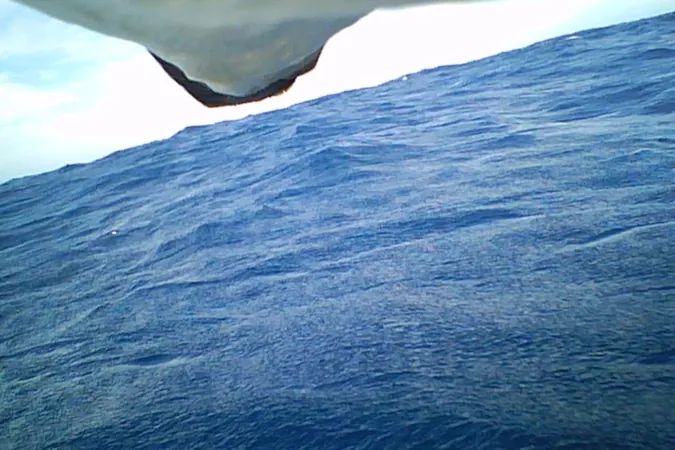
Shocking Discovery: Seabirds Prefer to Poop Mid-Flight Instead of on Water!
2025-08-18
Author: Nur
In a startling new study published in the journal Current Biology, researchers have uncovered an unusual behavior among seabirds that will have you rethinking what you know about avian bathroom habits. It turns out that streaked shearwaters, a type of seabird, prefer to do their business while soaring through the sky rather than floating on water!
Led by scientists from the University of Tokyo, the research involved strapping tiny cameras onto the bellies of 15 of these birds nesting on Funakoshi Ohshima Island in Japan. Analyzing over 195 defecation events captured on video, the team discovered that these feathered creatures poop exclusively in flight, doing so every 4 to 10 minutes.
"I was surprised by how frequently they relieved themselves in the air," admitted lead researcher Leo Uesaka in an interview with Discover Wildlife. "The quantity of defecation events documented was far greater than I had anticipated."
The analysis revealed that almost all pooping incidents occurred while the birds were in the air, with around half of these events happening within just 30 seconds of taking off. Some birds would launch into the sky, poop, and then return to the water in less than a minute—showing that these flights were primarily for the purpose of dropping a load!
Even more surprising, the research calculated that these shearwaters excrete approximately 5% of their body weight, which generally ranges between 400 to 600 grams. Uesaka explained that reducing weight by excreting could enhance their flying efficiency, particularly since taking off from the water demands significant energy.
Scientists have proposed several theories for why these seabirds might prefer this in-air bathroom ritual. For one, pooping while flying keeps their feathers clean, lowering the risk of pathogenic infections. Additionally, it might prevent attracting predators like sharks and seals that could be lured in by the scent of excrement.
The findings also highlight the broader ecological impact of seabird droppings, which are rich in nitrogen and phosphorus. This nutrient-rich feces could help feed plankton and contribute to nutrient distribution across vast ocean distances, akin to the 'whale pump' phenomenon, where the feeding and excreting habits of whales enhance nutrient circulation.
While one bird’s droppings may seem trivial, the sheer number of over 424 million seabirds amplifies this effect—potentially making a significant impact on marine ecosystems.
"People don’t often consider the importance of feces in nature," Uesaka concluded. This study not only opens a window into the fascinating habits of seabirds but also serves as a reminder of the intricate connections within our ecosystems.
So next time you gaze up at the skies, remember: those birds might be flying high, but they also have some pretty surprising habits!




 Brasil (PT)
Brasil (PT)
 Canada (EN)
Canada (EN)
 Chile (ES)
Chile (ES)
 Česko (CS)
Česko (CS)
 대한민국 (KO)
대한민국 (KO)
 España (ES)
España (ES)
 France (FR)
France (FR)
 Hong Kong (EN)
Hong Kong (EN)
 Italia (IT)
Italia (IT)
 日本 (JA)
日本 (JA)
 Magyarország (HU)
Magyarország (HU)
 Norge (NO)
Norge (NO)
 Polska (PL)
Polska (PL)
 Schweiz (DE)
Schweiz (DE)
 Singapore (EN)
Singapore (EN)
 Sverige (SV)
Sverige (SV)
 Suomi (FI)
Suomi (FI)
 Türkiye (TR)
Türkiye (TR)
 الإمارات العربية المتحدة (AR)
الإمارات العربية المتحدة (AR)